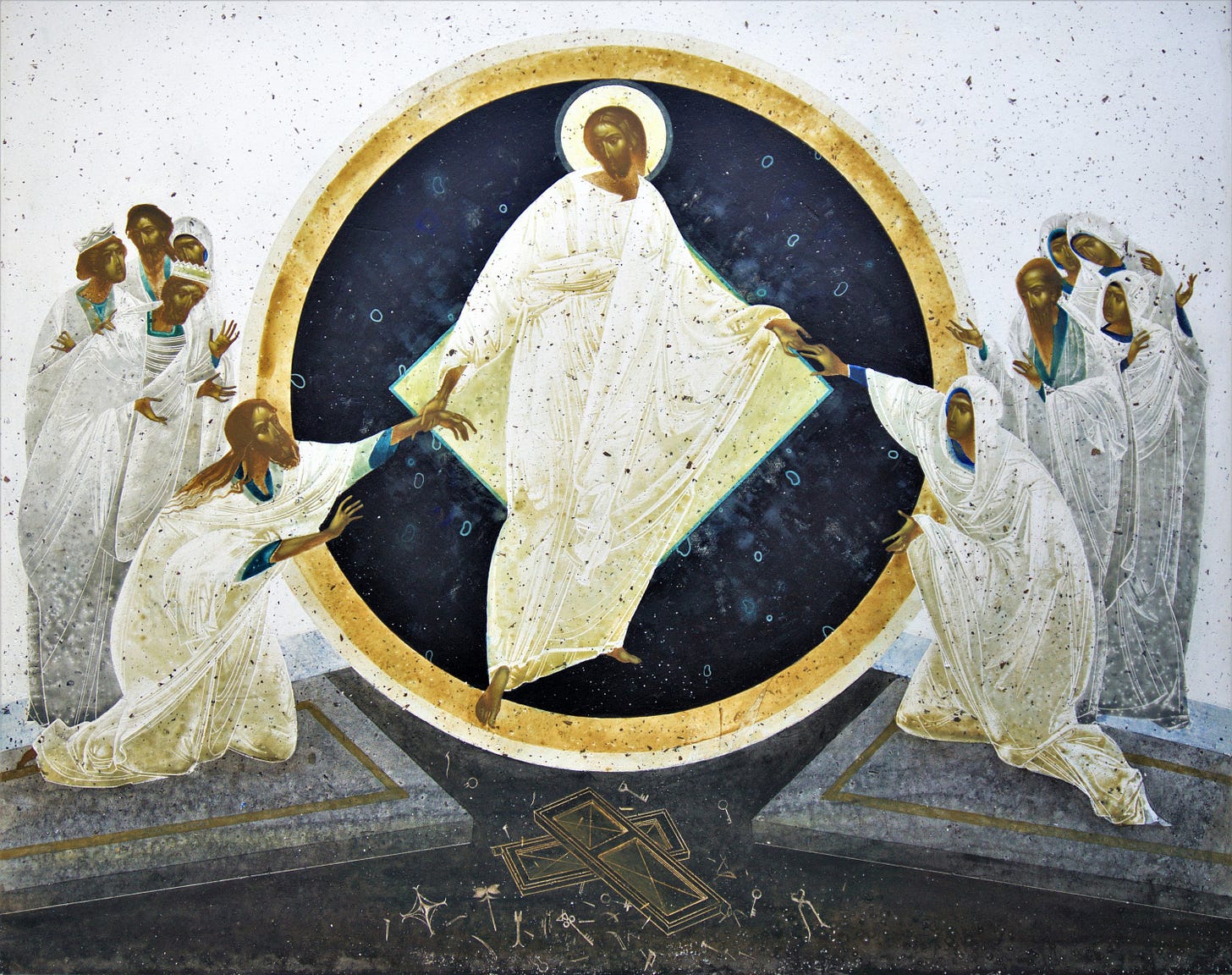Seriously, God is Good
"Apokatastasis is but the gospel of Christ's absolute and unconditional love"
John 12:20-33
The Gospel passage for the Fifth Sunday of Lent is John 12.20-33:
Now among those who went up to worship at the festival were some Greeks. They came to Philip, who was from Bethsaida in Galilee, and said to him, "Sir, we wish to see Jesus." Philip went and told Andrew; then Andrew and Philip went and told Jesus. Jesus answered them, "The hour has come for the Son of Man to be glorified. Very truly, I tell you, unless a grain of wheat falls into the earth and dies, it remains just a single grain; but if it dies, it bears much fruit. Those who love their life lose it, and those who hate their life in this world will keep it for eternal life. Whoever serves me must follow me, and where I am, there will my servant be also. Whoever serves me, the Father will honor. "Now my soul is troubled. And what should I say--' Father, save me from this hour'? No, it is for this reason that I have come to this hour. Father, glorify your name." Then a voice came from heaven, "I have glorified it, and I will glorify it again." The crowd standing there heard it and said that it was thunder. Others said, "An angel has spoken to him." Jesus answered, "This voice has come for your sake, not for mine. Now is the judgment of this world; now the ruler of this world will be driven out. And I, when I am lifted up from the earth, will draw all people to myself."He said this to indicate the kind of death he was to die.
At the tail end of Lent, John provides preachers the opportunity to proclaim that all shall be saved.
This is not as daring a suggestion as may appear. Nor is it ground others have feared to tread.
As my former teacher David Bentley Hart insists about universal salvation:
“For the earliest and greatest of the church fathers in general, the story of salvation was really quite uncomplicated: We were born in bondage, in the house of a cruel master to whom we had been sold as slaves before we could choose for ourselves; we were born, moreover, not guilty or damnable in God’s eyes, but nonetheless corrupted and enchained by mortality, and so destined to sin through a congenital debility of will; we were ill, impaired, lost, dying; we were in hell already. But then Christ came to set us free, to buy us out of slavery, to heal us, to restore us to our true estate. In pursuit of those he loved, he invaded even the very depths of that hell we have made for ourselves and one another—in the cosmos, in history, in our own hearts.”
English translations of the Gospel of John elide how bluntly Jesus speaks of the cosmic scope of his saving work. The Greek of verse thirty-two makes it inescapable that, as Al Kimel puts it, “Apokatastasis (universal salvation) is but the gospel of Christ's absolute and unconditional love sung in an eschatological key.”
The penultimate verse in Sunday’s Gospel actually reads in the Greek:
κἀγὼ ἐὰν ὑψωθῶ ἐκ τῆς γῆς, πάντας ἑλκύσω πρὸς ἐμαυτόν.
“And I, when I am lifted up from the earth, will drag everyone to me.”
A straightforward reading of the scripture will simply not permit the conclusion that the transcendent God of absolute love and infinite goodness would not bring into existence a world in which one or more human beings might be condemned to everlasting misery and suffering. Just so, the matter was really this uncomplicated for more of the ancient Christians than their posterity has permitted us to remember. The Father is not less merciful than the Son enjoins his disciples to be, nor does the Spirit sow fruit in us that is absent in or incongruent with the Father’s own attributes. God is good, as we teach our children. And we can teach our children that God is good because our conception of the good is analogous to the God who is Goodness itself and who has been disclosed to us in the self-giving of Christ.
As Gregory of Nyssa taught:
“The Word and he from whom he is do not differ in their nature.”
The Father is not less merciful than the Son enjoins his disciples to be.
Because the fullness of God dwelt in the Word made flesh, our words—words like good, love, and justice—are not empty. And if they are empty and correspond to nothing ultimately true, then there is no meaningful distinction between perfect faith and perfect nihilism. When our theological language has been so emptied of true corollaries in God, and when terms like justice and eternal punishment are paired together, then, as Hart writes, “the boundaries of the rational have been violated.”
The usual English rendering of the Gospel passage posits Jesus as enticement rather than active agent, “I will draw all people to myself.”
The literal Greek, however, gives us a Jesus who is determined to save us quite apart from how we might feel about it, “I will drag everyone to myself.”
Notice how the assertion that he will save everyone by dragging them to himself, kicking and screaming, rules out infernalist and annihilationist understandings of hell.
Keep reading with a 7-day free trial
Subscribe to Tamed Cynic to keep reading this post and get 7 days of free access to the full post archives.






